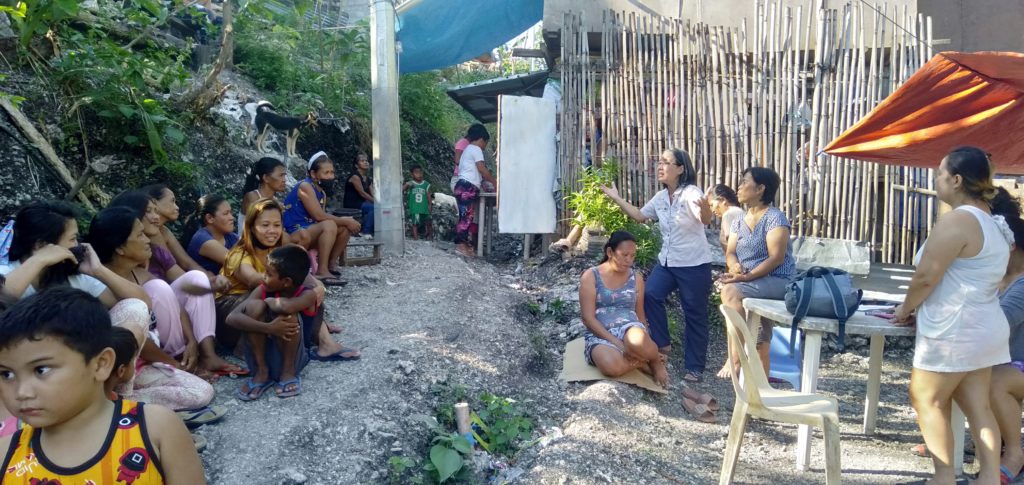A community diagnosis survey of two communities in an ongoing project of the Visayas Primary Health Care Services was recently completed.
The survey was conducted in Barangay Sto. Nino, Municipality of San Miguel and Barangay Caluasan, Municipality of Dagohoy, sites of the ongoing project, “Building Community-based Health Programs to Promote Health and Prevent Disease in Bohol” in partnership with the Asian Community Trust (ACT), Japan’s first fund raising-style charitable trust.
The communities have been affected by the failure of the Malinao Dam Project which has worsened their economic situation that in turn affected their health conditions.
The project which started in April 2010 works with the farmers’ organization in Sto. Nino, the Hugpong Mag-uuma sa San Miguel (HUMASA) or the Farmers Association in San Miguel and the farmers’ organization Mga Mag-Uuma sa LACALSANDA Apektado sa Land Levelling (MALALA) (Farmers in Lacalsanda affected by Land Levelling) in Caluasan.
The project centers on capability building of community health workers and leaders of the people’s organizations to launch health programs that answer the health needs of the communities.
The survey gathered data on the socio-demographic profile and health situation including common health problems, causes of deaths, the immunization status and nutritional status of preschoolers, health services available in the community, methods of family planning and nutritional and food practices of the families. Fifty percent of the households were respondents.
Key informant interviews were also conducted among the community leaders in order to complement and deepen the data.
The results of the survey were later discussed among the community leaders and recommendations were drawn that shall be implemented in the second year of the project.
Common health problems identified in the community diagnosis included respiratory tract infections, influenza, hypertension, diarrhea, muscle pains and fatigue, and common infections that can be prevented and managed through continuing health education and basic health services that can be rendered by trained CHWs and project staff.
The survey also recommended a family planning program to be instituted for couples who desire family planning in Caluasan which can be done through information drive regarding different forms of contraception and access of contraceptive commodities.
Malnutrition among children was also identified in both communities which shall be addressed through a nutrition program comprising of health education and information drive on proper nutrition and a feeding program for malnourished children.
Coordination with the rural health units and networking by the people’s organizations with other agencies shall also be done in order to address the problem of the lack of medicines and essential health services in the communities and the existing common practice of home delivery by traditional birth attendants.



